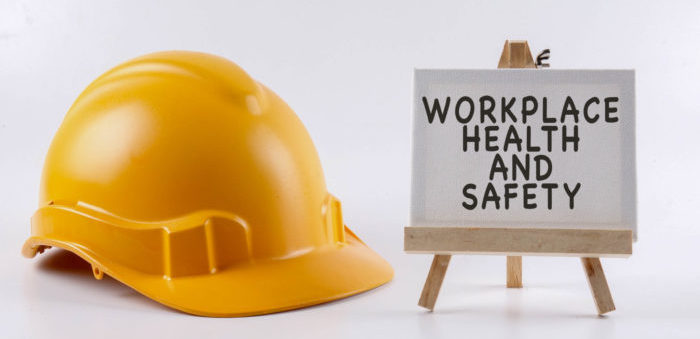In a recent ICS (International Chamber of Shipping) webinar, maritime and medical experts came together to discuss seafarers’ health and wellbeing, and what can be done to safeguard seafarers and make sure they are prepared for medical emergencies on board ships.
John Adams (Senior Advisor at V Ships, Chairman of Bahamas Shipowners Association and ICS Board Member), Flavia Pompa-Mellilo (VP, Global Head of Claims processes, Skuld), Dr Adrienne Buggs (Medical Technical Advisor, United States Coast Guard’s Office of Merchant Mariner Credentialling) and Dr Robert Verbist (Acting President, International Maritime Health Association), agreed that protecting seafarers’ health – both physical and mental- and providing assistance in the event of an emergency is simply the right thing to do and can only benefit the industry.
They also acknowledged that seafarers are the backbone of the shipping industry and that they should be treated with respect and in accordance with their needs, regardless of their position or background.
Seafarers must no longer be treated as commodities but rather as an essential part.
…said John Adams, V Ships
Preventing emergencies ensures crew safety
Preventing medical emergencies before they happen is an important move for crew safety. Flavia Pompa-Mellilo emphasized that P&I Clubs all over the world work to establish pre-sea medical examinations to detect medical problems and minimize their consequences. For some seafarers, pre-sea medicals are the only time they see a doctor.
Moreover, during the discussion, fatigue came up as a major cause of accidents. When seafarers are tired, they are more likely to make fatal mistakes. Therefore, it is critical to maintain a work-rest balance in order to avoid burnout and its lethal consequences.
You need to make sure they can rest not only as per time but also as per quality.
…said Flavia Pompa-Mellilo, Skuld, who also discussed that controlling cabin noise and vibration is a good way to ensure a good night’s sleep.
Fatigued or sick seafarers are prone to make mistakes that cause accidents devastating for the operation of the ship.
…she added.
A healthier lifestyle was also promoted by Dr. Robert Verbist. He highlighted the importance of a good diet, rich in fruits and vegetables, regular hydration, and physical activity. He also suggested that safety drills are a good way to prevent accidents.
Even though they are usually source of accidents, but at least they are less serious accidents.
… said Dr. Robert Verbist, International Maritime Health Association
Furthermore, he emphasized that proper ventilation, temperature control, and good hygiene are some of the most important factors in preventing the spread of infections. The pandemic, he believes, taught everyone a valuable lesson in good hygiene that should not be forgotten.
On a more social aspect, open communication, a sense of belonging, and trust can benefit crew members, experts believe. Many accidents can be avoided if crew members are free to openly discuss their problems or exhaustion without fear of repercussions or judgement.
It is essential that they can discuss any health and wellbeing concern with colleagues
… highlighted Dr Robert Verbist, International Maritime Health Association
A supportive environment where it’s ok not to be ok
…as John Adams, V Ships, described it.
Key considerations with medical assistance onboard
On the subject of emergency assistance on board, speakers stressed the importance of having at least one member of the crew trained in medical emergency response. As she said:
First thing they need is a person who’s providing medical care, who’s been well trained and prepared.
Also, according to Dr. Buggs, one of the most important steps is to understand common medical emergencies such as airway, breathing, and circulation problems (ABCs) and how to treat them. In terms of traumatic injuries caused by daily activities, she stated that knowing the ABCs is still critical, as well as knowing how to stabilize the cervical spine and stop bleeding.
They need to have the support of the master in managing an emergency.
… added Dr Adrienne Buggs, United States Coast Guard
On the subject of available medical equipment, the professionals agreed that having a medical chest onboard with medications, equipment, and emergency instructions was critical in order to treat and stabilize seafarers.
The chest should include instructions that are simple to understand and navigate. Dr. Buggs stressed the significance of clear protocols tailored to the vessel’s environment and the individual’s training. She also emphasized that contraception and STD (Sexually Transmitted Disease) medication must be available onboard in the event of an emergency such as sexual harassment.
Telematic support also came up as frivolously backed suggestion. Having access to telematic support is critical when dealing with an emergency. Experts in evaluating an emergency and stabilizing a patient can assist crew members remotely. Crew members can also be directed to specialists and informed of the nearest location for assistance.
Focus on Mental Health remains vital
Training in the fundamental principles of psychological trauma response and psychology in general can help seafarers better understand one another and avoid isolation, stigma, and shame.
How to care for someone who’s been traumatized, how do you evaluate that person, how do you interact non-judgmentally
…as Dr Buggs, United States Coast Guard, said
In addition, mental health awareness can help to reduce bullying and aid in the case of a sexual harassment victim or any other traumatizing experience onboard.

































































